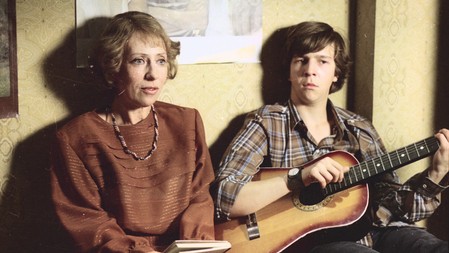Transilvania Goes Back to the USSR for Stories That Transcend Politics
By Will Tizard
LOS ANGELES (Variety.com) – Although the majority of the audiences at the Transilvania Film Festival can scarcely remember communism, the appeal of films from the Soviet era is remarkable, say organizers of the Back in the USSR (or URSS, as it was known to Romanians).
Screening five Russian films from the 80s, including the 1980 foreign lingo Oscar winner “Moscow Does Not Believe in Tears,” the fest has drawn crowds of young and older audiences to cinemas in Cluj all week. Evgeny Gusyatinskiy, who selected the films along with Transilvania artistic director Mihai Chirilov, makes the case that much of the cinema from the Soviet Union at the time has lasting social and artistic merit.
Referring to the last generation of Russian filmmakers before the Iron Curtain came down, Gusyatinskiy says these creatives “managed to create what might be called a Soviet Hollywood.”
Exploring many of the same themes as 1980s directors such as John Hughes were taking on in the U.S., Soviet filmmakers often seemed less concerned with agitprop than with love stories, teen angst and characters with big dreams.
Thus, says, Gusyatinskiy, many of these films “qualified as blockbusters at the time, not in terms of budget, but of audience admissions.”
The popularity of films such as 1987’s “Assa” by Sergei Solovyov, which turns on a young heroine who longs to escape her older lover’s clutches when she encounters a young underground rocker, should hardly be surprising then. And with a contemporary Russian director, Kirill Serebrennikov, currently under house arrest after making a film about a similar subject – “Leto,” which competed in Cannes – this film selection offers insights into an arguably more tolerant time even before communism fell.
The restless 1986 teen love story “Courier” (pictured) by Karen Shahnazarov and the 1983 middle-age crisis story “Flights in Dreams and Reality” by Roman Balayan were also big hits of the period, each focusing on characters who want more out of life than the dreary one they seem stuck in.
Such films were “highly popular and highly relevant today as well,” says Gusyatinskiy.
A 1985 film, “Come and See” by Elem Klimov, dares to depict soldiers in the Great Patriotic War, as World War II is known in Russia, as less than inspiring, daring young worker heroes. Instead, it follows a young Byelorussian boy, Flyora, who dreams of glory as he discovers the horrors of war after joining up with a group of partisans.
In “Moscow Does Not Believe in Tears,” the surprise international hit by Vladimir Menshov that beat films by Francois Truffaut and Akira Kurosawa at the 1980 Oscars – much to the consternation of some U.S. critics – three women come to Moscow from smaller towns with stars in their eyes.
Katerina, Lyudmila and Antonina are assigned the same worker’s dormitory room and become friends, throwing a party in Katerina’s rich relative’s luxurious apartment. Each girl meets a man, “a first step on a path full of love, turmoil, happiness and tears.”
But such women have “power and can do a so-called man’s job just fine,” says Gusyatinskiy – the kind of character as much in demand in Hollywood now as ever. Perhaps even more so.

